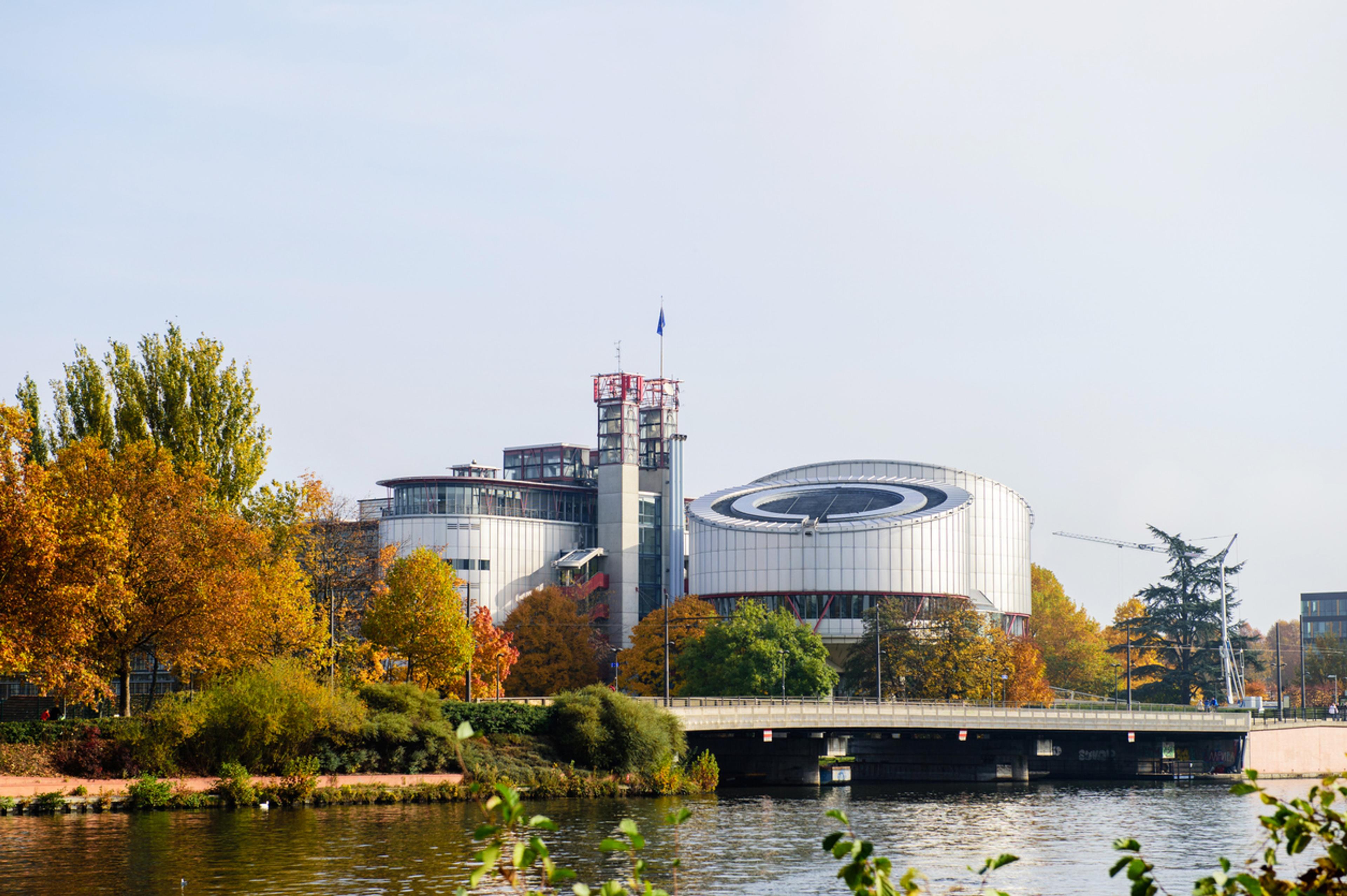
State won the conclusion –environmental organizations won the reasoning in ECtHR judgment of 28 October 2025
For the first time, the European Court of Human Rights (ECtHR) has delivered a judgment on petroleum extraction in Greenpeace Nordic and others v. Norway.
The case concerns a complaint against Norway filed after the Norwegian Supreme Court’s plenary judgment from 2020. It is now established that Article 8 of the European Convention on Human Rights, concerning the right to respect for private and family life, also imposes requirements on permits for petroleum extraction. Even if production lies far in the future, the permits have a “sufficiently close link” to climate change because no production occurs without permits being granted.
Case background
The background is the lawsuit brought by NGOs Nature and Youth, Greenpeace and Grandparents’ Climate Campaign in 2016, regarding 10 production licences for extraction of petroleum in the Barents Sea, north of Norway’s land territory. After the Supreme Court’s judgment in 2020 (HR-2020-2472-P), the organizations and six individuals brought a complaint against Norway before the ECtHR, alleging violations of Article 2 (right to life) and Article 8 (right to private life and family life) of the Convention. The complaint argued that Article 8 imposes requirements on the content and quality of environmental impact assessments (EIAs) related to petroleum extraction, including that combustion emissions (scope 3) must also be assessed. Norway’s practice has been not to assess scope 3 emissions, which was an undisputed fact.
The judgment builds on the ECtHR’s judgment in Verein KlimaSeniorinnen Schweiz and Others v. Switzerland (Klimaseniorinnen) from 2024 and case-law from a long line of climate cases from national courts and international tribunals.
Article 8 requires protection against dangerous climate change – causation
The ECtHR’s case-law sets out a requirement to establish a connection between the State’s act or omission and a possible Convention violation, i.e. a requirement of causation. Without a sufficient connection, Article 8 does not apply. Variants of causation questions have been considered in all the climate cases that have been litigated. How causation should be assessed was one of the questions the ECtHR asked the parties to comment on specifically during the proceedings.
Norway’s Supreme Court assessed causation based on the criterion “direct and immediate,” and concluded that there was no such connection between the State’s act and a possible violation of the Convention. The Supreme Court did not, however, comment on earlier ECtHR case-law that applies the criterion “sufficiently close link” as the causation standard, see HR-2020-2472-P paragraph 171.
In the judgment of 28 October, the ECtHR based its analysis precisely on the causation criterion “sufficiently close link.”
Regarding the connection between exploration activities based on production licenses and petroleum extraction, the ECtHR stated:
“ […]while exploration will not always, and certainly not automatically or unconditionally, be followed by extraction, in Norway, it is both a legal and a practical precondition for it. The Court agrees with the argument made by the applicants, […] that petroleum would not be extracted but for the opening of an area for extraction, and the granting of production licences. […] When considering causation for the purposes of attributing responsibility for adverse effects arising from climate change, the Court has not required it to be shown that “but for” a failing or omission of the authorities the harm would not have occurred […] The Court further observes that the link between petroleum exploration and its future production is inherent” (paragraph 294).
The Court also stated that even though most of the ten licences had been relinquished (no commercially viable discoveries were made), this circumstance “does not break the required causal nexus for the applicability of Article 8 of the Convention” (paragraph 295). The Court referred to the fact that some relinquished licences from the 23rd licensing round had been reissued:
“This has indeed happened with the area subject to licence no. 855, which was issued in the 23rd licensing round and then relinquished, and the area being ultimately relicensed under a new production licence no. 1170 […]. In the Court’s view, this example demonstrates the applicants’ argument that even a relinquished licence maps out an opened area for future discoveries”.
Accordingly, the causation requirement “sufficiently close link” was satisfied for all ten production licences (paragraph 299).
What procedural requirements must be met to avoid a violation of Article 8?
Norwegian practice has been to only assess the emissions arising from petroleum production as such and not combustion emissions (scope 3), referring to the notion that all countries are responsible for emissions on their own territory.
The ECtHR, however, specifies that in order to avoid a violation of Article 8, an environmental impact assessment of petroleum projects must include a “quantification of the GHG emissions anticipated to be produced (including the combustion emissions both within the country and abroad) […]” and that it must be assessed whether extraction is compatible with Norway’s obligation to implement effective measures against “the adverse effects of climate change” (paragraph 319.)
On this point, the ECtHR goes a step further compared to the State responsibility set out by the Court in KlimaSeniorinnen which concerned territorial emissions, extending it to also apply to emissions from exported petroleum.
Whether such combustion emissions must be assessed has long been a contentious issue in many countries and internationally. Based on legal developments, both in national and international courts and, most recently, in the advisory opinion from the International Court of Justice (ICJ) of 23 July 2025, which emphasized that all States are obliged to prevent greenhouse gas emissions at “at source”, it is not surprising that the ECtHR, without reservation, concluded that combustion emissions must be assessed at the planning stage.
Public consultations must be conducted early enough that it is still possible to prevent pollution “at source,” i.e., by refraining from extraction (paragraph 319).
The ECtHR finds support for the requirement to assess combustion emissions in a long line of decisions recently handed down by other tribunals, cf. decisions from the International Tribunal for the Law of the Sea, the Inter-American Court of Human Rights, the EFTA Court’s advisory opinion on assessment requirements at the PDO stage and the recent opinion from ICJ, see paragraphs 321 to 324.
On the quality of environmental impact assessments (EIA), the ECtHR states that “any EIA must, by law, be based on relevant, up-to-date and sufficient information constitutes an important safeguard against any bad faith assessments prepared by licensee developers” (paragraph 336).
In its concrete application of the law, the ECtHR comments on the procedure preceding the award of the production licences from 2016: “The Court cannot but agree with the applicants that the processes leading to the 2016 decision were not fully comprehensive. Indeed, the orientation paper explicitly deferred the assessment of climate effects, ecological relationships, ocean acidification, and so on, to the stage at which management plans were being laid […] “.
However, the ECtHR follows the Norwegian Supreme Court majority’s assessment that it is acceptable to defer the assessments of climate effects to the plan for development and operation stage (PDO), which is the final stage in the sequence of permits under the Norwegian Petroleum Act (paragraph 330). Because the complaint concerned production licences, which are issued in an earlier stage in the sequence of permits, this led to acquittal in the conclusion.
No legitimate expectation of PDO approval
It is worth noting that in paragraph 331 the ECtHR points out that under Norwegian law, the licensee does not have a “legitimate expectation that a PDO will be approved.” The term “legitimate expectation” refers to possible state liability for compensation if a “legitimate expectation” created by the state is not fulfilled, cf. Protocol No. 1 to the ECHR. The statement can be read as a message to petroleum companies with production licences that have spent billions on exploratory drilling but have not yet obtained an approved PDO. These companies have taken an economic and climate-related risk that they must expect to carry themselves.
Victim status – a question of standing - who can bring complaints to the ECtHR in climate cases?
A contentious issue in the case was whether the NGOs as such could meet the requirement of being a victim of a human rights violation cf. Article 34, or whether this was contrary to the principle that the Convention protects individual rights, and not collective rights. KlimaSeniorinnen clarified that NGOs on behalf of their members can, specifically in climate cases, be considered “victims” because the interests the Convention seeks to protect in relation to climate are best safeguarded by organizations.
The ECtHR has now reiterated this and additionally clarified that Greenpeace, which is not a membership organization, also has victim status in cases concerning climate (paragraph 312). In the many climate lawsuits that have been brought in various countries and before international courts, environmental organizations have played a decisive role in enabling the lawsuits to be brought at all. The reiteration that environmental organizations have standing in climate cases is therefore important.
What is the practical significance of the judgment?
It was an undisputed fact in the case that combustion emissions had not been assessed in the ten production licences issued in the 23rd licensing round, which encompassed 34 so-called “blocks” in the Barents Sea. In the 24th and 25th licensing rounds, 12 and 4 licences, respectively, were awarded, covering far more blocks. Additionally, licences have been awarded in so called predefined areas, i.e., outside the licensing rounds. In total, the licences awarded after the 23rd round cover over 200 blocks in Norwegian maritime areas.
As far as we have been able to ascertain, impact assessments as now required by the ECtHR have not been carried out for these licences. Continuing a practice in which combustion emissions are not assessed will constitute a violation of Article 8. The requirement to assess combustion emissions no later than at the PDO stage applies to both small and large fields, and regardless of how likely or unlikely it is that the licence will result in future production or not.
Approval of a PDO without a complete assessment of combustion emissions is the subject of a pending case before the Borgarting Court of Appeal. That case was won by the environmental organization in the Oslo District Court (TOSL-2023-99330.) The State’s arguments that the PDO decisions the case concerns are valid are further weakened after this judgment from the ECtHR.
Based on the general knowledge about global warming that is now widely available and known, and the legal developments that have taken place since the negotiation of the Paris Agreement in 2015, it seems uncontroversial that all forms of combustion emissions should be assessed at the planning stage of projects intended to extract fossil fuels. The law, however, moves slowly, and legal development does not occur without a parallel movement in the general perception of how the law must be. With some exceptions, the trend is that climate lawsuits are won in the reasoning, and that this also strongly influences legal development.
Bull Advokatfirma is very proud that our lawyer, Cathrine Hambro, has litigated for the environmental organization at all stages of the Norwegian climate lawsuit, including before the ECtHR. An almost decade-long process reached its conclusion with the ECtHR’s judgment on 28 October.
How can we help?
In need of legal assistance? Call or email us, and we'll figure out how we can help.
Expertise
- Auditing and accounting
- Climate, environment, waste and sustainability
- Company law and transactions
- Competition law, state aid and EU/EEA
- Construction
- Employment law
- Familiy law, guardianship and divorce
- Inheritance, probate and succession planning
- Insurance and liability
- Intellectual property and marketing law
- Investigation and compliance
- Life sciences and health technology

